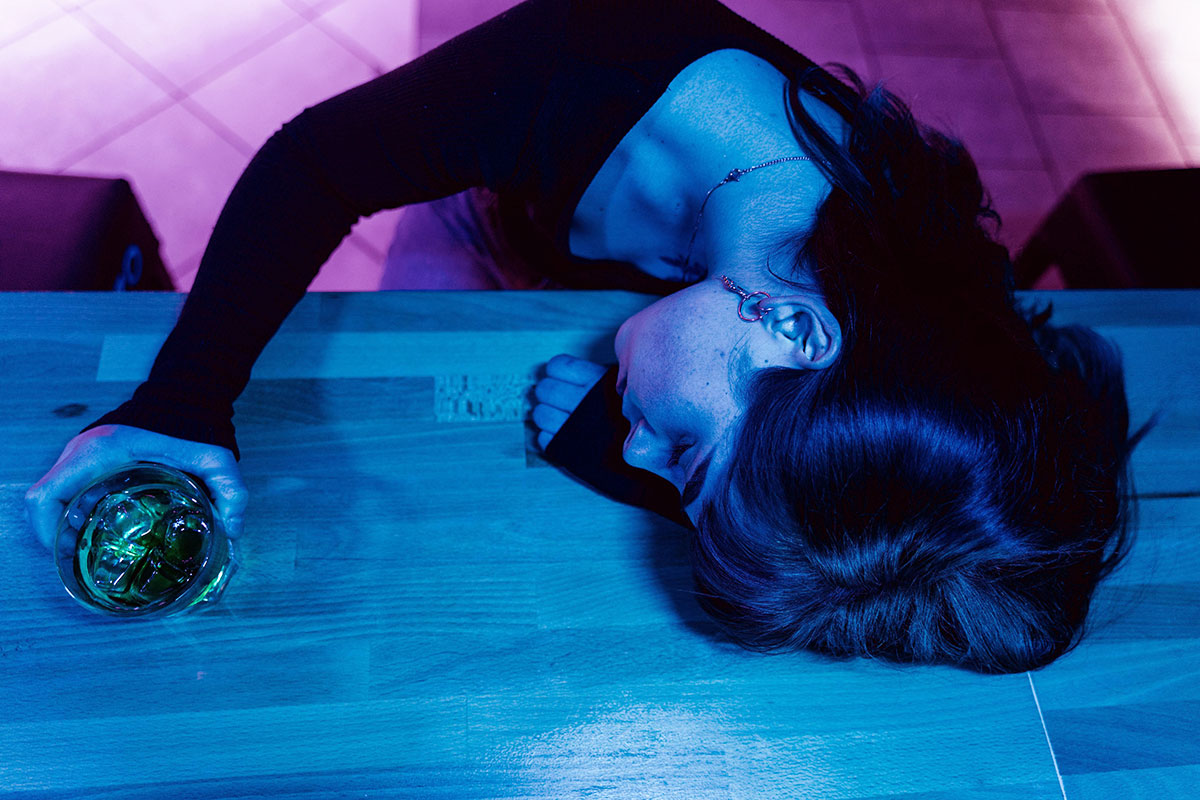We Accept Most Insurance. Please Call to Verify Yours.






![]()







Nearly everyone drinks at least occasionally. And, everyone who drinks has, on occasion, experienced taking it too far and ending up sick. But, for some people, drinking to that extent becomes a normal event. Blackout drinking happens when you drink so much you don’t remember what you did, how you acted, or even where you ended up. That experience can be scary, difficult to manage, and can mean you don’t get to have accountability for your actions even if you want to be. It can result in regret, bad decisions, and putting your life in danger. It’s also often a sign that you or your loved ones are drinking too much –because blackout drinking should never happen when drinking safe amounts of alcohol.
Blackouts are extremely common. In one study, 66.5% of college-aged participants experienced a blackout over a period of 6 years.
Blackout drinking refers to moments when you drink so much that your brain temporarily loses the capacity to transfer short term memory to long-term memory. That normally means your Blood Alcohol Content (BAC) is at 0.16% or higher. This normally requires about 4 drinks over a period of 2 hours for women or about 5 for men – after which you’re at risk of experiencing blackouts. People consistently experience blackouts when they’re at about twice the legal limit for alcohol to drive.
During a “blackout” a person may walk around, act normal, and interact with others. Often, people who experience blackouts wake up the next morning with no memory of how they got somewhere, of ordering food, of taking someone home, of what they said, or why. In other instances, memories can be fragmentary. For example, “grey-outs” or “brownouts” usually refer to the phenomenon of having fractured or blurry memory, where you have gaps and then sudden memories. For example, you might not remember calling a taxi to get home but you might have flashes of remembering the highway or a flash of being stopped by the police.
This happens because alcohol works as a depressant or suppressant on the brain. It lowers the ability of the brain to carry signals between neurons, making it harder to form memories. As a response, the brain will sometimes create steroids, which actually prevent new memory formation entirely. So, as soon as something is gone from short-term memory, it’s gone forever.

While drinking too much too quickly is the most common reason for getting blackout drunk, many people also experience blackouts when mixing drugs and alcohol. Here, drinking alcohol while taking benzodiazepines is the most known cause. Benzodiazepines like valium and Xanax exacerbate the memory impacts of alcohol, as well as the intoxicating effects. This means you can feel woozy, fatigued, nauseous, and dizzy even after drinking a moderate amount of alcohol. Worse, you can stop forming memories, which means you’ll have less control over your actions, less ability to judge when you’re drinking too much, and more risks of overdose and alcohol poisoning.
Other drugs can also result in blackout drinking. That’s also true whether they’re taken with a prescription or recreationally. Eventually, drugs that warn you away from alcohol while using them do so for a reason.


Waking up after a night of drinking and not remembering what you did can certainly be terrifying. However, it can also be dangerous. When you black out, you’ll continue to engage in conversations, to make decisions, to live your life – but based on memories that vanish a few minutes after you form them.
For example, if you’re having a blackout you can’t store long term memories. This means you’ll have no way to keep track of how many drinks you’ve had – which means it’s impossible for you to rationally decide when to quit based on how many you’ve had.
In addition, you’ll be less likely to be able to safely use drugs. If you add recreational drugs to alcohol use, a blackout can result in an overdose, because you literally don’t remember what you took before.
Blackouts also come with all of the risks of extreme intoxication. You’re more at risk of self-harm, of driving while drunk, of harming others, at risk of violence and sexual assault, and exposing yourself to STDs – but without the memory of having done so.
Finally, individuals who routinely experience blackouts show impaired memory and have more difficulty recalling social contexts of memories –even when sober. This means that frequent blackouts harm your ability to form new memories, even when sober.
People get blackout drunk at very different levels of alcohol. In fact, some people will appear to be extremely intoxicated while blacked out. Others might not even appear to be impaired or barely so. Why? People respond different to alcohol. Factors like metabolism, tolerance, and normal alcohol consumption will all impact how a person reacts to alcohol.
For example, if someone doesn’t normally drink a lot and they get blackout drunk, they will act and look very intoxicated. On the other hand, if that same person is accustomed to drinking that much and more on a regular basis, they might have a great deal of alcohol tolerance. That generally means they’ll need a lot more alcohol to show intoxication. However, the mechanisms of blocking memory generally don’t move – which means that person will lose memories.
Can you black out after drinking a moderate amount of alcohol? It’s technically possible but so statistically rare as to be completely implausible. In most cases, if you black out on only a small amount of alcohol, it’s because you’ve mixed alcohol with another drug.

There are plenty of factors that impact blackouts. For example, drinking on an empty stomach or while sleep deprived increases your chances of blacking out. However, the largest risk is how quickly alcohol is consumed. Anyone with a blood alcohol level over 0.16 is at risk of blackouts. However, a blood alcohol level of 0.20-0.30 is almost guaranteed to do so – although not for everyone. That means about 4-5 standard drinks over the course of four hours puts you at risk, but 15-20 means you’re almost guaranteed. A “drink” is a single shot of alcohol or about a full beer. You’ll also want to avoid mixing drugs and alcohol – which means that if you have a prescription with an alcohol contraindication, you shouldn’t drink.
In most cases, you shouldn’t drink more than about one standard drink per hour. Otherwise, you will get intoxicated and you will see negative effects. Drinking about one and a half standard drinks per hour still puts you under the risk limit for blacking out.
Either way, if you’re blacking out, you’re also likely highly at risk for having impulse control, poor decision-making around alcohol, and binge-drinking tendencies. That can mean you need help with quitting or even reducing your alcohol intake. If that’s the case, it’s important to reach out, to talk to your doctor, and to get personalized advice on how you can improve your mental and physical health around alcohol.
If you or a loved one is seeking help for alcohol or other substance abuse, contact us at Stairway Resource Center today. At Stairway Resource Center we provide a 60 to 90-day outpatient program that takes place in an engaging and supportive community setting. We offer dual diagnosis treatment and daily group and individual therapy for our clients, in addition to fun community-based events and activities.